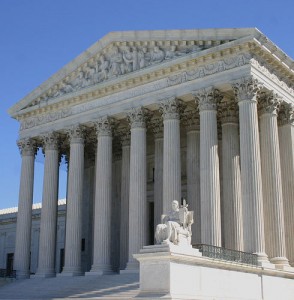How Will The Healthcare Reform Decision Affect Latinos?
 Whether the U.S Supreme Court will uphold the Healthcare Reform Act or not is something I won’t bother to speculate. There are enough opinions and soothsayers out there to satisfy everyone’s need to know. Conventional wisdom puts the future of healthcare squarely on the shoulders of Justice Anthony Kennedy, the tried-and-true swing vote on the bench. I think the best strategy is to wait for the Justices to render their opinion.
Whether the U.S Supreme Court will uphold the Healthcare Reform Act or not is something I won’t bother to speculate. There are enough opinions and soothsayers out there to satisfy everyone’s need to know. Conventional wisdom puts the future of healthcare squarely on the shoulders of Justice Anthony Kennedy, the tried-and-true swing vote on the bench. I think the best strategy is to wait for the Justices to render their opinion.
In the meantime, though, it would be interesting to understand where the U. S. Latino community stands on the issue, and how Latinos will be affected by the Court’s decision. For that, we’ll look at some basic numbers and statistics:
- Latinos comprise 12% of the nation’s population.
- 66% of Latinos approve of President Obama’s Healthcare proposal.
- Nearly 4 out of every 10 Latinos don’t have health insurance; the highest rate among all racial/ethnic groups.
- 87% of uninsured Latinos come from working families.
- Nearly 33% of all Latinos work for employers who don’t provide health insurance.
Those basic facts speak volumes about what’s at stake for Latinos and the outcome of the healthcare decision. But there are nuances at play that make the Latino position strategically important for healthcare in general. First, though, we need to correct a grave Democratic Party spin error. As is usually the case, the Democrats lost the healthcare framing battle to the Republicans; the reform act is widely known as “Obamacare,” and I’m sure that’s not what the administration wanted.
The Democrats will spin the frame to say that it will benefit the president when the reform finally wins the hearts and minds of the American public. You’d expect that. But the truth is that the reform is neither about President Obama nor about healthcare. What’s being debated in the Supreme Court is the way Americans pay for healthcare – the care, in essence, won’t change, but the way we pay for it will. That said, the reform is really about health insurance, which is why it’s called the Affordable Care Act. And from this point of view Latinos will affect a significant part of the future of America’s health insurance reform.
It works like this: insurance is a gamble, so the insurers need to hedge their bets in order to make money. They do this by selling health insurance to healthy people. The bet is that they’ll make more money from the healthy than what they pay in health costs for the sick. This makes more sense when you realize that 50% of healthcare costs are used by the sickest 5% of the population. Now, keep that in mind and look at the situation through the lens of the Latino community.
Latinos are the youngest ethnic group in the country (50% of Latinos are under age 35), and by default of youth, the healthiest. Also, there is a projected deficit of 30 million workers that will come with the mass wave of baby boom retirees. Someone is going to have to take up the slack, work, and pay the health insurance premiums that will pay for the boomer’s healthcare. Can you see where this is going? According to highereducation.org:
Over the next 15 years, the largest increase in the younger U.S. population is projected to be Hispanic/Latino…the Hispanic/Latino portion (of the U.S. workforce) is projected to almost triple (from 6% to 17%).
It’s a two-sided argument. Latinos will benefit more than other groups from healthcare reform, and at the same time they’ll be needed in a big way to make sure that the reform works.
Latinos aren’t on the sidelines on this issue, they’re a significant piece of the overall way in which healthcare will work, who it will help and whether it will be successful in coming years. That said, all we can do now is wait. The Justices of the Supreme Court are expected to make a decision regarding healthcare in June.
[Photo by openDemocracy]
